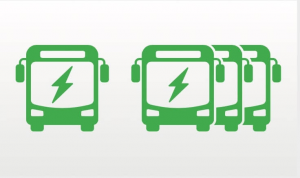Intelligent Systems for Sutainable Urban Transport

Over 55% of the world’s population lives in urban areas, and this figure is forecasted to increase. Quality of life in big cities is diminishing due to high levels of pollution, noise and traffic. Air pollution is responsible of nearly half million premature deaths of european citizens, while at least one million healthy lives are lost from traffic related noise in western Europe (according to the World Health Organization). In order to mitigate this trend, national and European administrations are promoting sustainable policies. Most of the identified strategies and actually the most incisive ones, target the transport sector because it is the largest contributor to these undesirable effects. One of the most prominent strategies is the electrification of the fleets of vehicles. These new sustainable and efficient transportation systems require, therefore, a complete redesign. This opens new challenges that must be solved, as well as new opportunities.
In this project, we propose to develop highly efficient sustainable urban transportation systems. We focus, specifically, in the design of efficient public transport (PT) and refuse collection (RC) systems. The former proposes the use of the novel plug-in electric hybrid buses for urban transport because of their flexibility. They can switch between diesel engine and electric battery at any moment and can charge their batteries en-route (in less than 6 minutes fully recharged). An appropriate battery management will lead to large energy savings and thus better performance of the system. An optimal design of the urban public transport, considering the battery management as well as the creation of zero-emission and zero-noise corridors will be developed in this project. Moreover, a dynamic driver advisory system that gives recommendations about speed, dwell time or use of the electric battery, will be implemented. The latter proposes a novel intelligent refuse collection system with a fleet of 100% electric trucks. These trucks were placed on the market this year, thus there is no exact evidence of their real performance. We will develop a predictive model of the energy consumption considering the resources needed for lifting the containers, packing and refuse weight, among other factors. Precise prediction of the current capacity of the containers will be also performed to give priority in the collection of some routes. This routes will be optimized and the number of vehicles needed will be reduced to minimum.
MICINN Plan Nacional (Retos)
Team: 8 researchers
Duration: Jan 2019 – Dec 2021
Quantity: 88.693 €
IPs: P. Ruiz & B. Dorronsoro
Ref: RTI2018-100754-B-I00